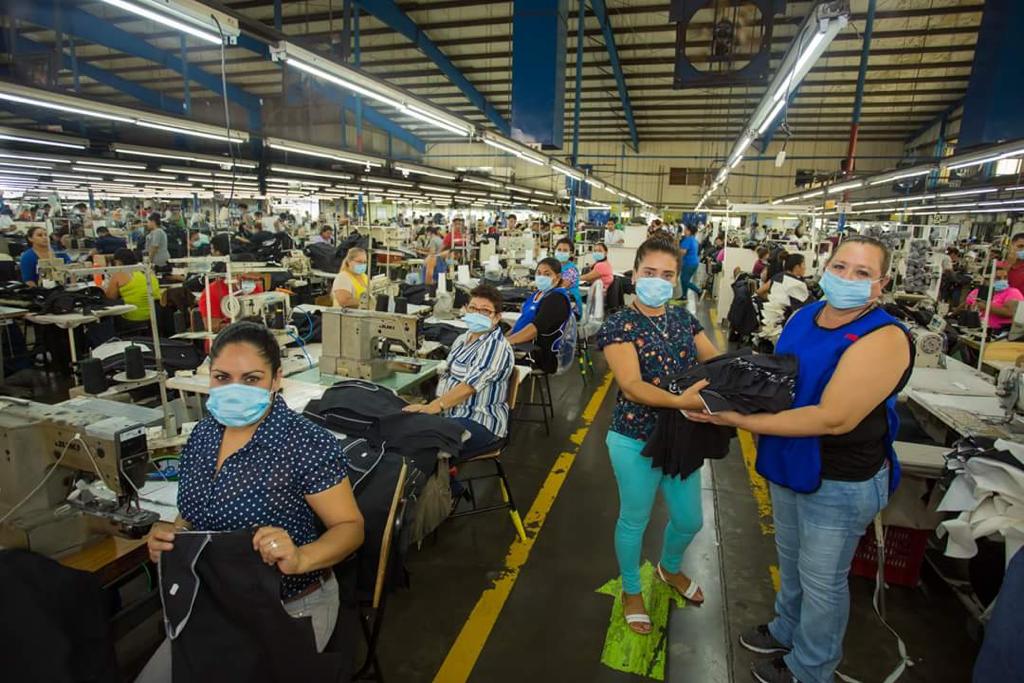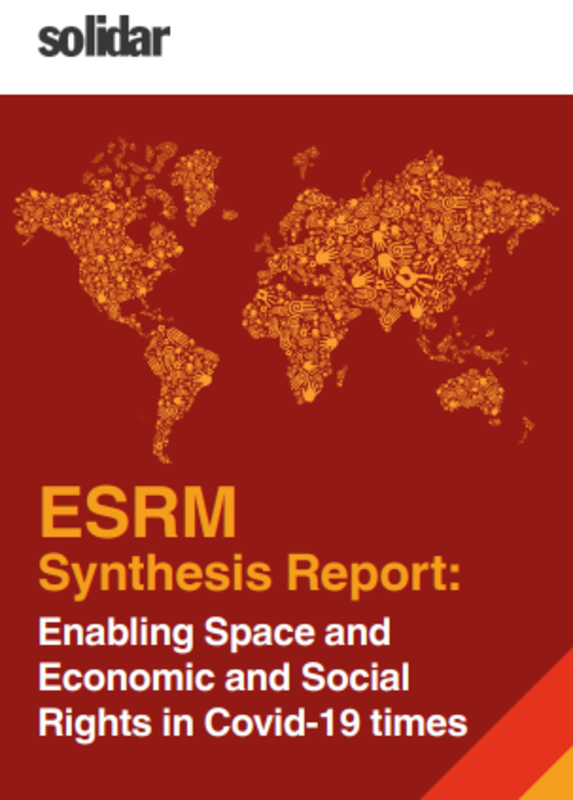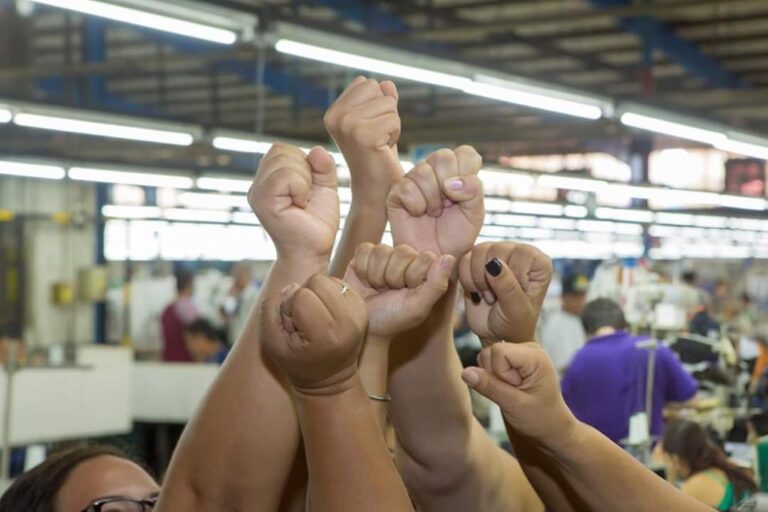Left behind?: Maquila workers in Central America and the COVID19 crisis
About 400.000 people working in the maquilas (factories in the free trade zone) in Central America, are at risk to be left behind due to the coronavirus crisis. The group includes mostly women, many of them poor, with low level of education, single mothers, head of their household.
SOLIDAR member FOS, works in the region to support the maquila workers and follow their situation during the crisis closely.
What is happening with the maquila workers?
Union leaders denounce a series of violations of their labour rights, including unfair dismissals, suspension of work without pay, compulsory advance of vacations, compulsory subscription to ‘voluntary resignations’ and violations of safety and health conditions at work – among others.
The impact of the Covid-19 for the workers is dramatic: ‘We live on our weekly income, and we can simply not save with the low wages we have. Some factories announced they could stop even for up to four months. We can hardly survive for two weeks, can you imagine the desperation of our people? Our members contact us as leaders, especially the single mothers, and they say that they do not have enough to pay for food, for the rent, for water. If someone in the family gets sick, it is hell…The health system is bad and it is very difficult to get help: our members fear death’.
Call for social protection and economic rights during the crisis
In this moment of health and socio-economic crisis, the Central American maquila workers ask that:
- Brands and companies provide the workers with social protection through a global solidarity fund, that guarantees a basic income during the Covid-19 crisis and support in the recovery period.
- The EU holds European brands and companies accountable for their social responsibility commitments with maquila workers.
- The global leaders, especially in the EU and the UN, promote the adoption of a sustainable and inclusive treaty on the global garment value chain that is in line with the Sustainable Development Goals (SDGs).
The dramatic situation maquila workers are confronting at this moment, illustrates the problems of our globalised production and consumption systems (SDG12) and at the same time, the interlinkages of all SDGs. The failure to provide decent work for all (SDG8), brings:
- risks of poverty, hunger and health problems; access reduction to basic services – such as electricity and water (SDG6 and SDG 7),
- increased inequalities, putting more pressure on women (SDG5 and SDG11),
- a push to societies to conflict and migration (SDG16 and SDG 17) and
- an underlining to a call all to partners: solidarity to leave no one behind (SDG17).
This crisis shows that the achievement of the SDGs in Central American countries is endangered in the absence of International solidarity and global frameworks, that guarantee the social and economic rights of their population.
Very soon, the SOLIDAR Network will publish an extended briefing on the maquilas and the Covid-19 impact in Central America.

Images credit: our member FOS NGO




